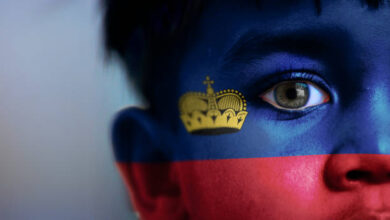10 Things You Are Not Allowed to Do in Cuba

Traveling to Cuba can be a fascinating experience, given its unique history, culture, and political landscape. However, the Cuban government has strict regulations that visitors must adhere to. Here are 10 things you are not allowed to do while in Cuba:
1. Freely Access the Internet
Cuba has one of the most restricted internet systems in the world. Access to Wi-Fi is limited, often requiring a purchased access card at specific public hotspots like parks, hotels, and government-controlled areas. Certain websites, including news outlets critical of the Cuban government, might be blocked.
2. Engage in Political Dissent
Political dissent is not tolerated in Cuba, and criticizing the government can have serious repercussions. Demonstrating, distributing political pamphlets, or participating in political protests is illegal. The government strictly controls political expression, with harsh penalties for those who engage in anti-government activities.
3. Stay in Non-Approved Accommodation
Foreign visitors are required to stay in government-approved hotels, registered private homes known as casas particulares, or tourist-designated areas. Staying in unregistered private homes is prohibited, and violations can result in fines or legal action.
4. Take Photographs of Military Installations or Officials
Photography is usually unrestricted in Cuba, but taking photos of military installations, police stations, or government officials is illegal. This is considered a security violation, and it can lead to confiscation of your camera, a fine, or even detention.
5. Conduct Business Without a License
Entrepreneurship in Cuba is heavily regulated, and only licensed businesses are permitted to operate. Foreigners, including tourists, are not allowed to conduct unlicensed business activities. For instance, setting up informal tours, selling goods, or freelance work without a proper license can lead to legal consequences.
6. Bring Drones Without Permission
Bringing drones into Cuba is restricted, and importing one without prior authorization can lead to confiscation at the airport. Drones are considered a security risk, and strict regulations are in place for their use. A permit must be obtained from the Cuban Institute of Civil Aeronautics before you can legally fly a drone in the country.
7. Export Cuban Art Without Authorization
Cuba has strict rules about exporting artwork, antiques, or historically significant items. While tourists can purchase Cuban art, pieces valued as cultural or historical heritage need a permit from the National Heritage Council. Attempting to take such items out of Cuba without documentation may result in hefty fines.
8. Use or Possess Certain Foreign Currency
Although the U.S. dollar is widely accepted in Cuba’s tourist areas, the government has restrictions on its use. For instance, paying in U.S. dollars at state-run shops is prohibited, and only the Cuban Peso (CUP) and the Cuban Convertible Peso (CUC) are officially accepted. Additionally, some credit cards issued by U.S. banks might not work in Cuba due to the ongoing embargo.
9. Access Certain Television Channels and Media
Cuban citizens have limited access to international media, and foreign television channels are often restricted. Satellite dishes are banned, and the government controls the broadcasting media. While tourists might have access to international news in hotels, locals cannot freely access foreign TV or radio channels, which are tightly regulated.
10. Drive a Rental Car After an Accident
If a tourist is involved in a car accident in Cuba, they are not allowed to leave the country until the case is fully resolved, which can take time. This restriction applies even to minor accidents. It is a legal requirement for tourists to remain in Cuba while an investigation is ongoing, and passports may be confiscated to ensure compliance.
Cuba is a fascinating destination with its rich culture and unique political environment, but its rules and regulations can be strict. Being aware of what is and isn’t allowed will help ensure a smooth and trouble-free visit to this Caribbean island. Always respect the local laws, and when in doubt, consult with your tour guide or local authorities for guidance.




